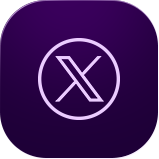As the cryptocurrency market continues expanding, it is definitely necessary to know what Ponzi schemes are. As developers and projects are trying to gather funds through token sales, Ponzi schemes might also seem to be legitimate. But these schemes are simply frauds. They are trying to steal our money.
In this post, we will discuss all the information you should have about Ponzi schemes. We will share with you what they are, how to avoid them and how they are staling users’ funds.
What are Ponzi Schemes? #
Ponzi scheme is the name given to a kind of fraud that uses new investors’ money to pay profits to new investors. For example, a crypto company may be promoting a token that promises profits to users that buy this asset.
Once the users purchase the asset, they will start receiving funds. Thus, everything seems normal and even very positive. The profits are very high and the experience is very smooth. In general, there is going to be a lot of promotion on social media of this project. This would make investors believe the crypto company is growing and doing a good job.
Despite that, the profits paid to the first investors are going to be paid with the funds deposited by newer investors. As long as new investors place their funds into this company, the profits can be paid and the illusion of success can continue.
The users of these platforms and crypto projects believe that they are earning legitimate funds from business operations. However, all of the funds (or most of them), are going to come from new investors. If older investors claim all of their funds, the Ponzi scheme may not last for a long period of time.
The owner of the Ponzi scheme is going to be sharing with investors regular reports of their funds and profits. They will also be pushing investors to “re-invest” their funds rather than cashing them out.
How to Spot Ponzi Schemes? #
There are some red flags that would allow us to understand whether a project could be a Ponzi scheme. In this section, we are going to share these red flags with you:
- Large (sometimes unbelievable) Profits – If you are promised to get massively large profits (“Get 500% profit on your investments in 5 days!)
- Not regulated companies – if the company does not have a regulatory license in some of the most regulated countries, this should be considered a red flag
- They push you to re-invest your funds – they push you to re-invest your funds even when you want to cash out
- Issues trying to cash out – if you are finding issues to cash out, then you should be concerned about it
- Lack of basic information – some Ponzi schemes are created in just a few days. If you have been denied basic information, then this should be considered a red flag
- Complex and sometimes not logical investment strategies – Ponzi schemes will be using complicated terminology or complex investment strategies. If you find they are offering investment strategies that do not seem logical, then ask more questions and ask for further information.
Karatbars #
Karatbars is certainly considered to be one of the largest Ponzi schemes that have been operating in recent times. This company has been promoting through strong marketing campaigns and multi-level affiliations the KBC coin.
According to the firm, the KBC coin is blacked by real gold that is held by the company. Users can buy KBC coins knowing they are backed by real golds. This is how a stablecoin would work but with a fiat currency. Nevertheless, there are many differences between Karatbars and traditional stablecoins in the market.
Karatbars is promoting the project through a multi-level affiliate program that is already one of the red flags we need to take into consideration when analysing whether a project is a scam or not.
Another point to mention is that the only way to get the gold is by using a KBC ATM. These are traditional ATMs that are branded with the Karatbar logo and that provide users with “cash gold.” The main issue with these ATMs is related to the fact that there are few or almost no ATMs installed. This makes it difficult, if not impossible for users to withdraw their funds in gold.
In addition to it, the company has already been investigated by several regulatory agencies around the world. Canadian regulators have banned the company and its affiliates in the country. Meanwhile, the Bank of Namibia has also announced that the company was not suited to operate in the country.
The real way to make money for this company is to attract a larger number of investors that will place their funds into this ecosystem and attract a larger number of users as well.
Forsage #
The Forsage Ponzi scheme has also been attracting a large number of users to its platform. The Ponzi / Pyramid scheme has pushed investors to search for new ways of investments in the DeFi market.
The company was able to gather around $3 million in Ethereum (ETH) funds during the last few days. Users are attracted by investing a small amount of ETH (0.05) and then they are promised to receive profits according to the new users they bring to the platform.
Forsage claims that the more partners that participate, the more money is collected. Consequently, they are able to continue operating. Several cryptocurrency experts and analysts have warned against Forsage. Even the Securities and Exchange Commission of the Philippines has warned investors about Forsage.
In addition to it, the project does not have a license to operate and it is considered a Ponzi scheme where investors are paid using the contribution of new investors. This shows how this Ponzi scheme is growing, how users are making money (the first investors) and how the newcomers are going to lose their investments as soon as there are no new users ready to place their funds into this scam.
While many consider it is an opportunity of a lifetime, understanding which are the basic points of a crypto Ponzi scheme will help you to distinguish whether a project is legit or not.











